Content Warning: this piece discusses sexual violence
I never thought I would face sexual violence firsthand, but no one ever does.
I always followed the rules — don’t walk home alone at night, don’t wear revealing clothes, don’t drink too much, don’t do drugs, don’t forget your pepper spray, don’t wear headphones, don’t lead them on, just don’t do it. Don’t get raped. It’s that simple.
I wasn’t worried. I felt prepared and knew that if something ever did happen to me, I’d be ready to fight back and then report it. That would heal the pain, right? If we lock up every rapist, that’ll end rape culture and violence, the trauma will cease to exist. Right?
Sadly, it’s not that simple and reporting doesn’t heal trauma. Often, it does just the opposite.
In the past year since the #MeToo movement began, the insurgence of stories about sexual violence has been both moving and productive. Watching as women, nonbinary folks and men share their experiences, their emotion is tangible and I can nearly feel the structure of patriarchy shaking.
Instances of sexual violence are underreported. In fact, Rape Abuse and Incest National Network (RAINN) estimates that 66 percent of sexual assaults are not reported. Those who do report risk facing intense backlash from the media, friends, family and internet trolls. But, thanks to those who have come forward, powerful men like Harvey Weinstein, Kevin Spacey and Matt Lauer have been taken down. And conversations about sexual violence and campus activism have increased in tandem with large-scale protests during the Trump administration like the Women’s March, the March for Science, and the March for Our Lives.
Seeing people speak out is encouraging, yet, as a survivor of sexual violence myself, reading the news has become increasingly overwhelming and retraumatizing. Each time I get a news notification telling me another person has come forward about an assault, I get a sinking feeling. I’m transported back to the place I was when I was assaulted, unearthing details I try to bury and feeling as if I’m experiencing the violence all over again.
I do not feel this alone — flashbacks, Post Traumatic Stress Disorder (PTSD), and emotional responses from sexual violence are common. RAINN reports that 30 percent of survivors experience PTSD symptoms nine months after their assault and 70 percent deal with moderate to severe distress as a result of their rape.
The effects of sexual violence are long-lasting. The #MeToo movement intensifies these effects. This past week, following Dr. Christine Blasey Ford’s testimony against the Supreme Court nomination of Brett Kavanaugh, has proven to be a test of my emotional capacity. Even when I had muted all of my notifications, it was still seared into my brain that a woman was showing her trauma to millions of people and some would never believe her. Following this story as it unfolds has been a relentless reminder of the lasting feelings of trauma produced by acts of sexual violence.
I knew that I was not alone in this feeling, so I spoke to my friends who are also involved with Students for Reproductive Justice (SRJ), a club I co-founded in 2017 with three other DePaul students. SRJ provides students with materials and information necessary to have healthy, consensual sex and relationships.
In light of the #MeToo movement, we’ve been developing a survivor group on campus and doing more to end sexual violence. Following Dr. Ford’s testimony against Kavanaugh, we decided to do something tangible with our rage. Working with other organizations, including the International Socialists Organization, Advocates for Sexual Assault Prevention and Students Against Incarceration, we organized a walkout, rally and protest on Thursday, October 4 in support of those who have experienced sexual violence.
The walkout began at 4 p.m. on DePaul’s Lincoln Park Campus. One hundred twenty five students congregated on the Quad to listen to speakers from seven organizations talk about supporting survivors and the Kavanaugh hearing. At 5 p.m. students on DePaul’s Loop Campus and at Columbia College Chicago walked out. The three protests converged outside the American Bar Association. Here, students and organizations spoke again and the crowd chanted rallying cries of “believe survivors.”
Claiming rage is a radical act of self care in a society that teaches those assigned female at birth that they should suppress, forget and move on when they are abused. Spaces like today’s protest allow for anger to be expressed without harming others while being actively supported by other protesters who share disgust at the treatment of Dr. Ford, frustration with the current administration and a passion to make sure survivors are believed and supported.
As I walked away from the protest, I felt lighter and filled with emotion. I was grateful to have a place to release my rage surrounded by survivors and people who care enough to show up. As I strolled across the Chicago River on my way to the ‘L’, voice raspy and adrenaline retreating, I could hear chants echoing from the protest, “We believe you, Anita Hill. We believe you Dr. Ford. We believe you survivors.”
Photos by Cody Corrall and Madeline Happold, 14 East.
DePaul University Resources
Survivor Support Advocates (Confidential)
Office of Health Promotion and Wellness
773-325-7129 / hpw@depaul.edu
University Counseling Services (Confidential)
Lincoln Park Campus: 773-325-7779
Loop Campus: 312-362-6923
Chicago Resources
RAINN Hotline
800-656-4673
Chicago Rape Crisis Hotline
888-293-2080
Header by Natalie Wade. Photos by Madeline Happold, 14 East.


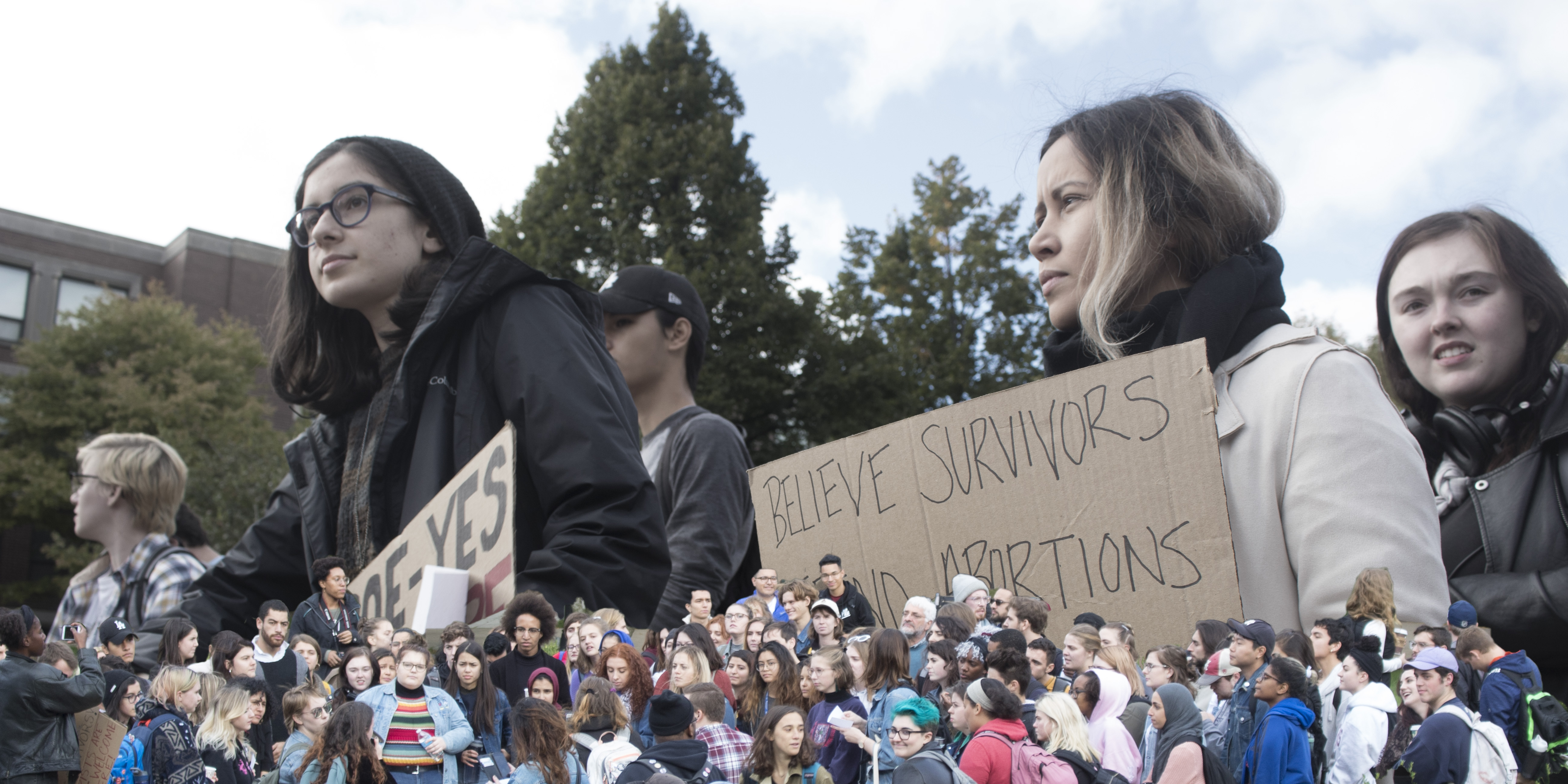
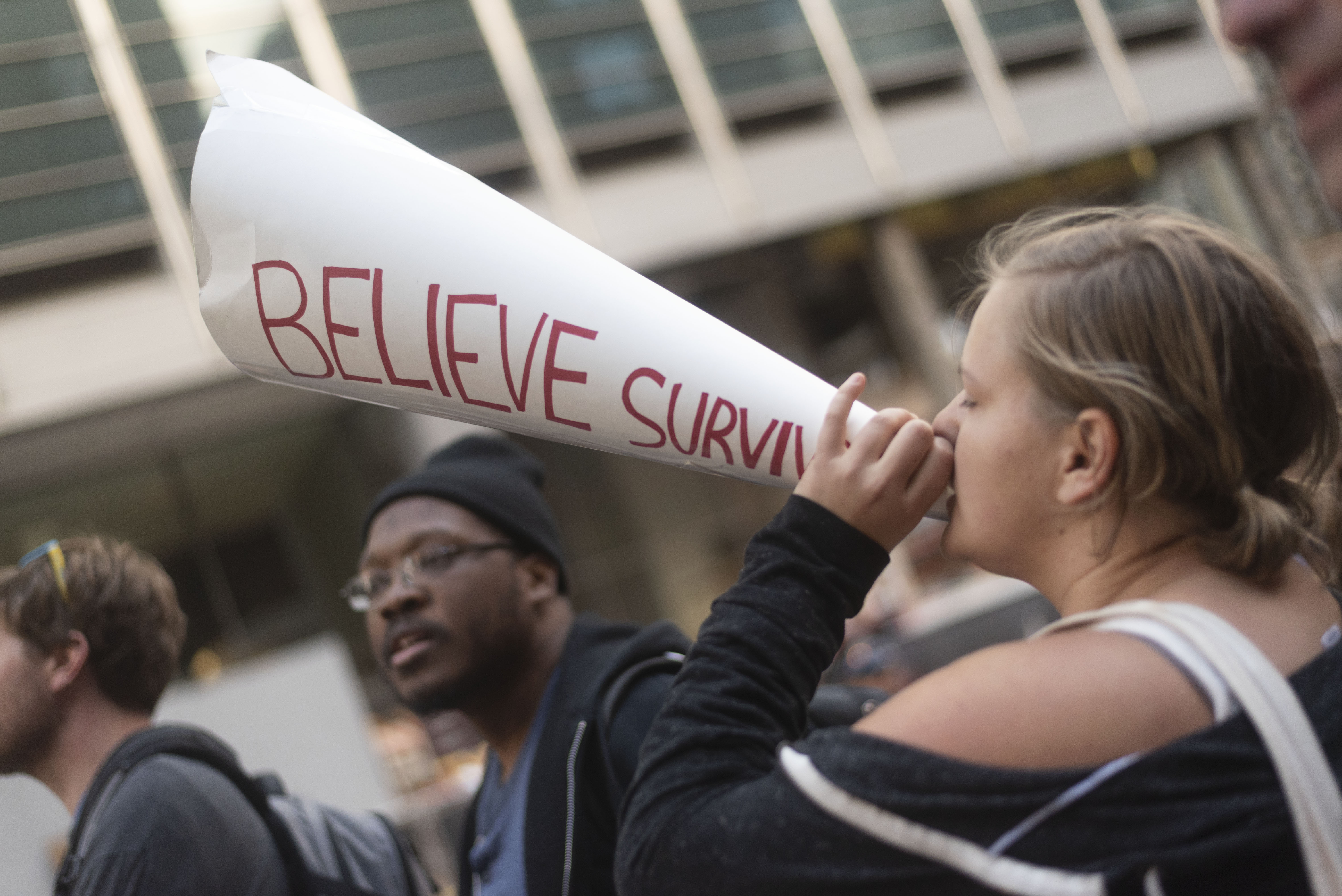
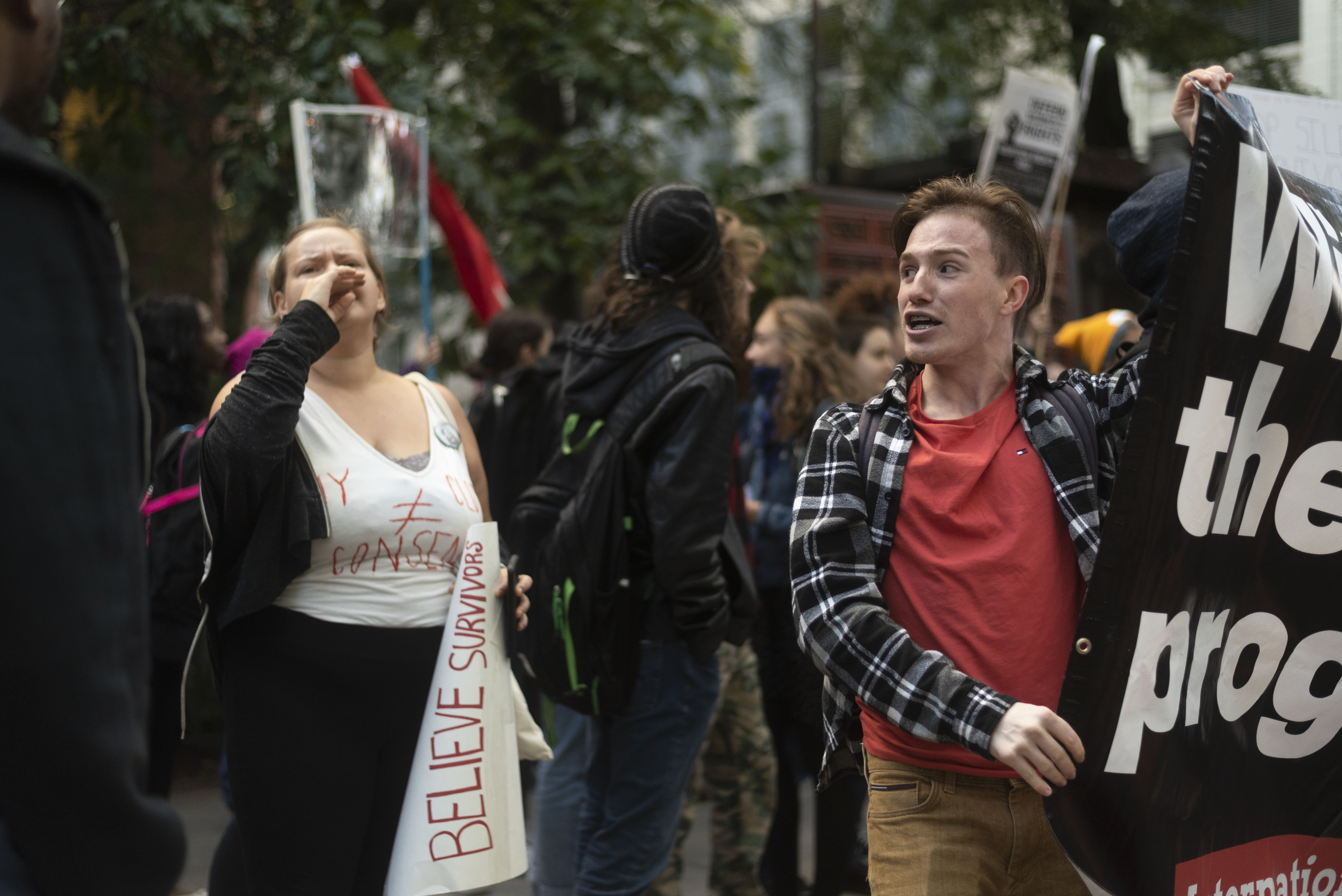
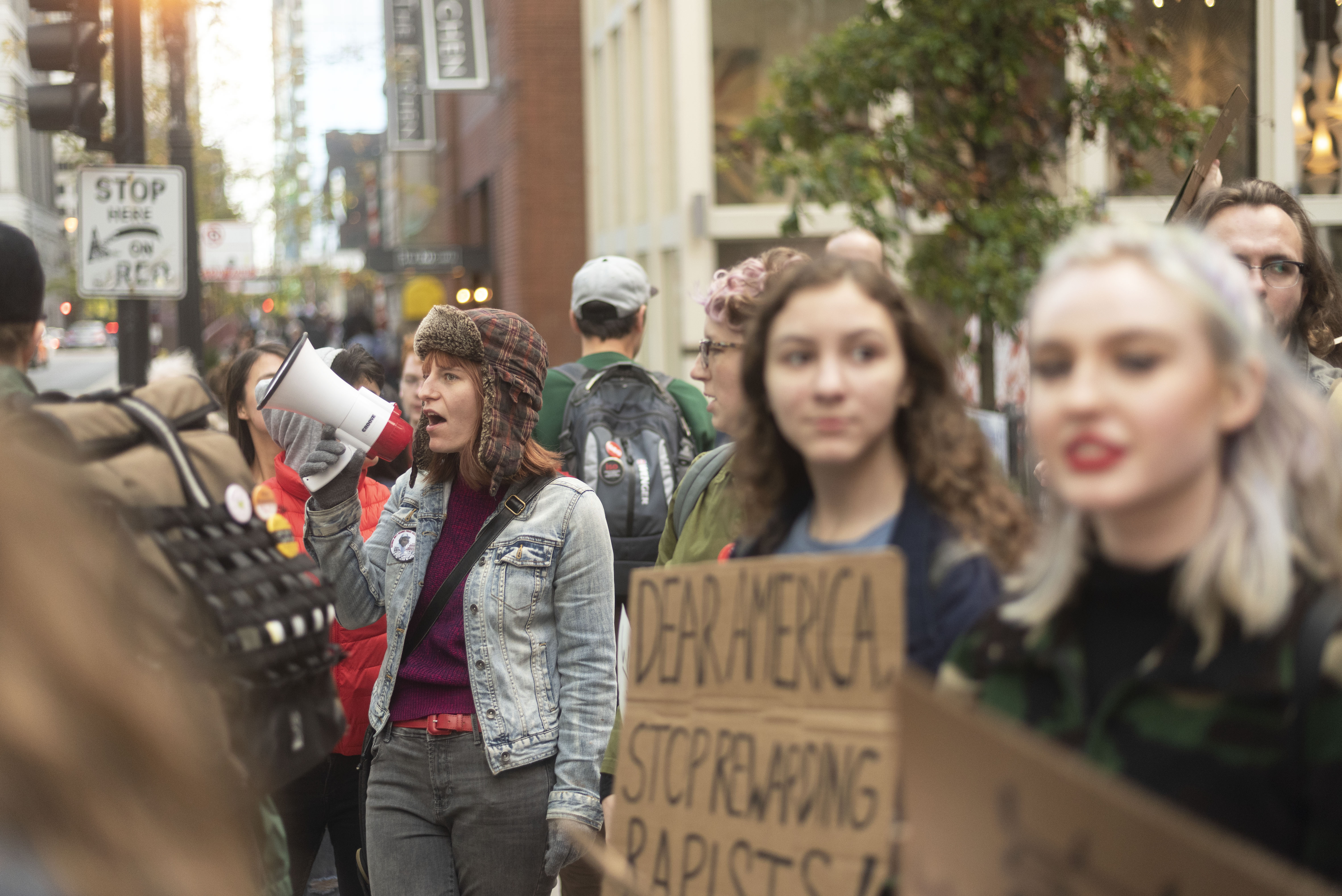
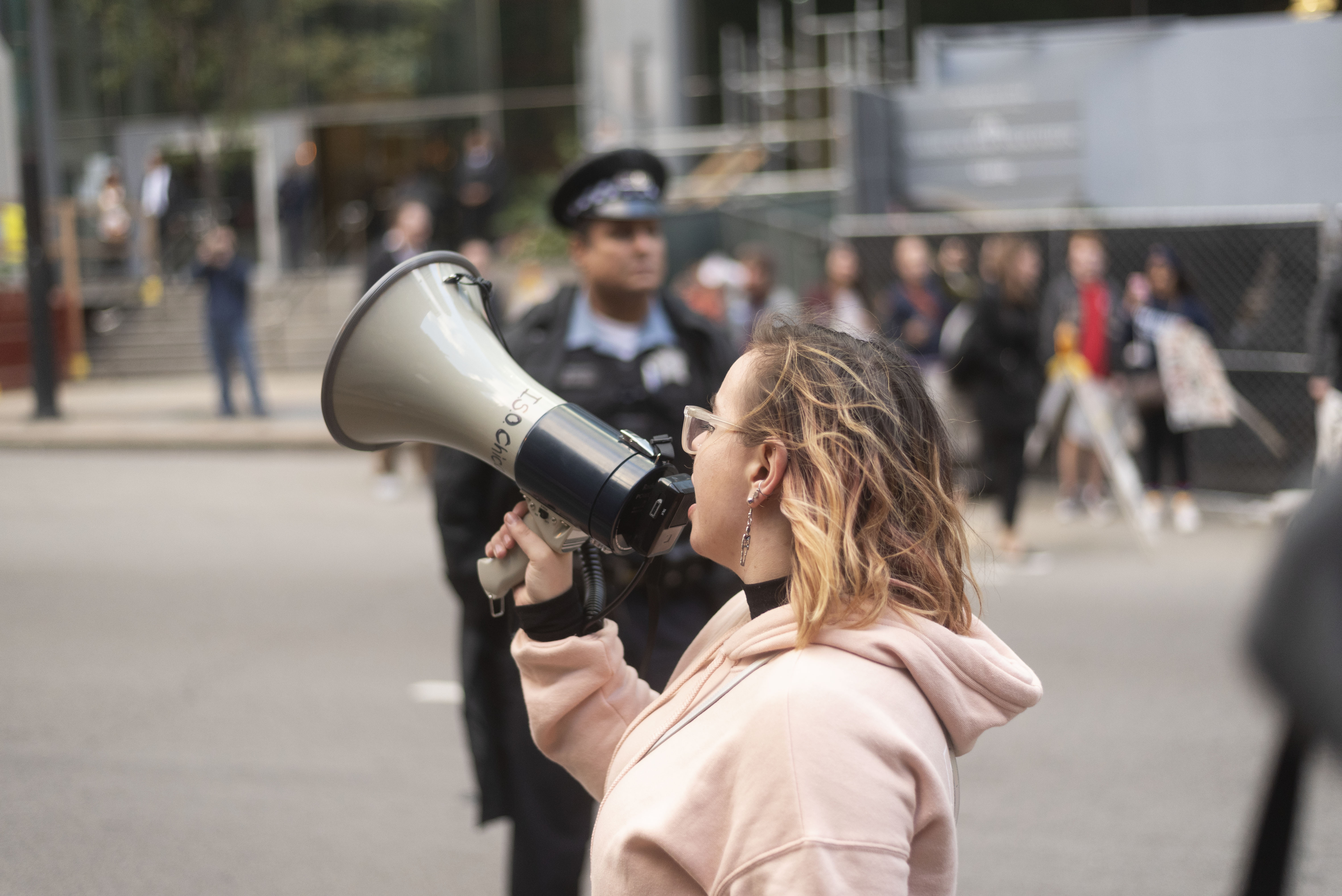
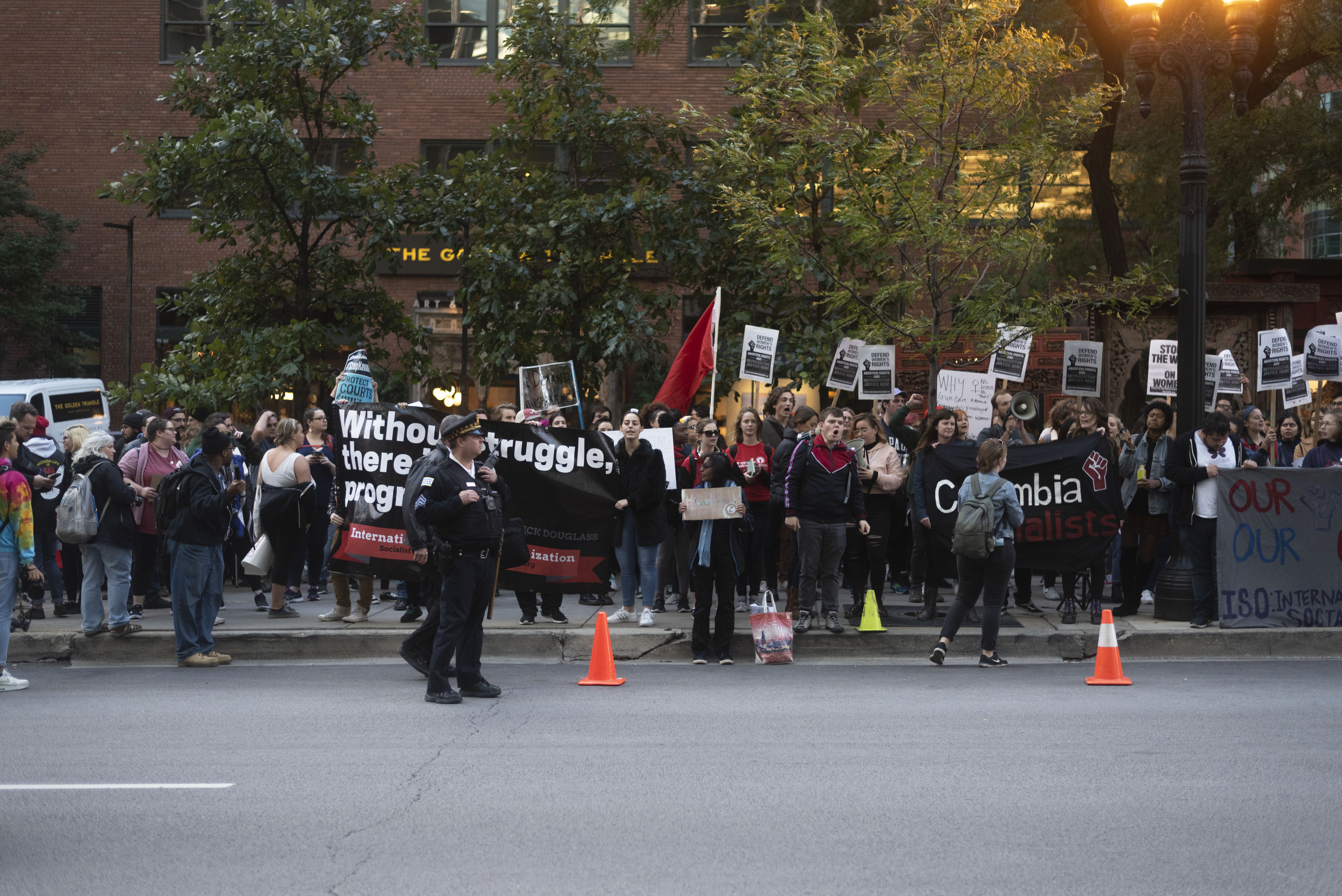
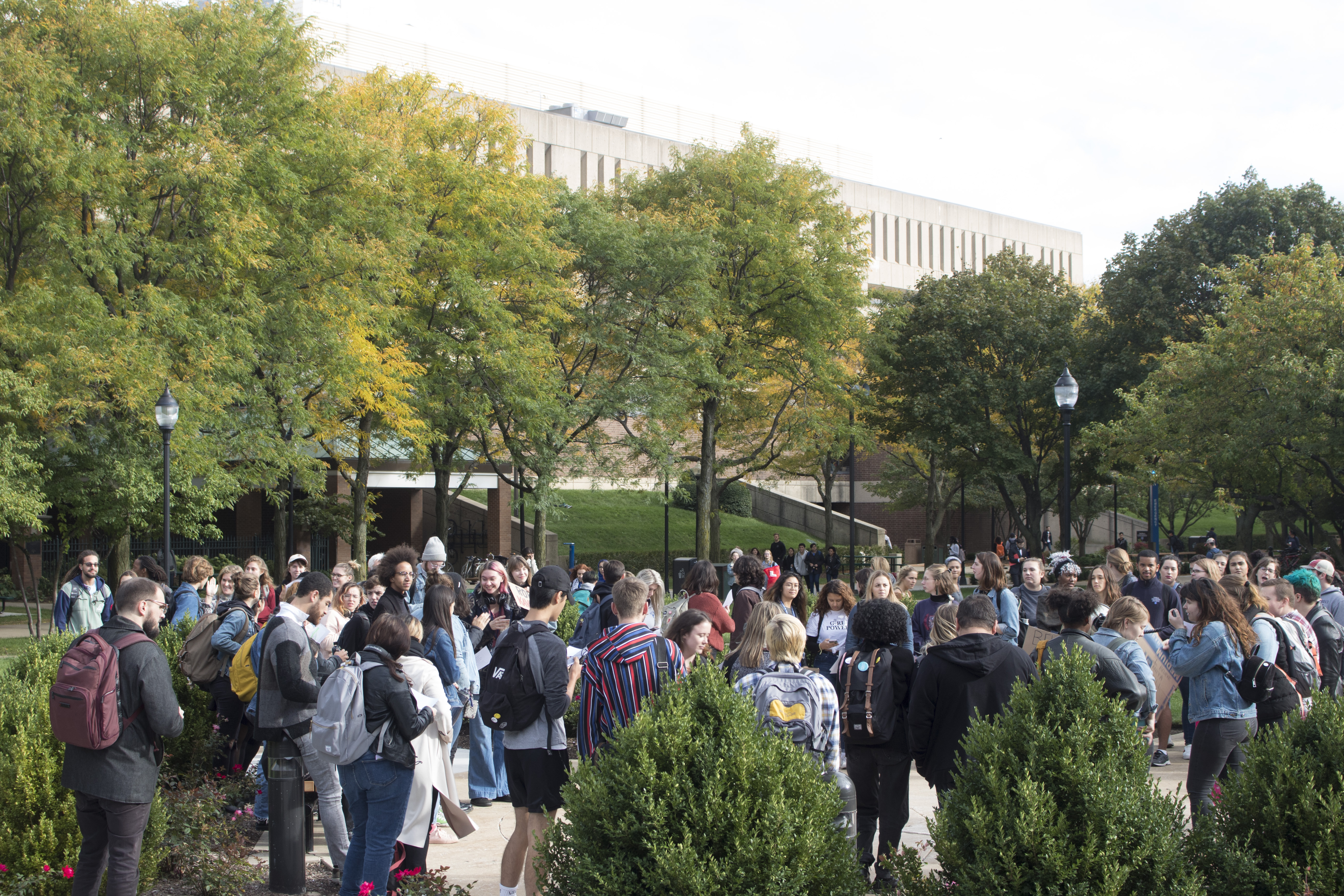
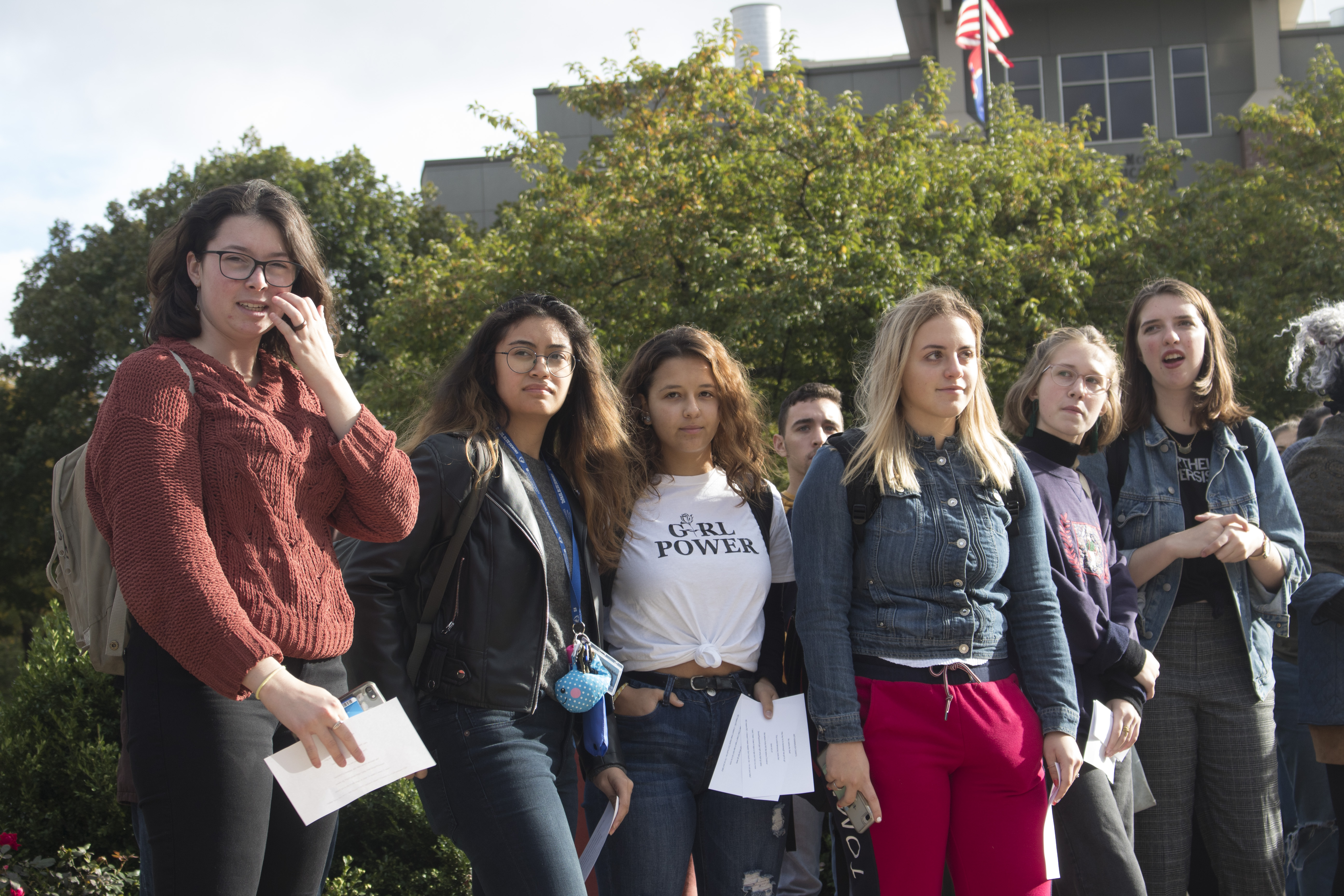
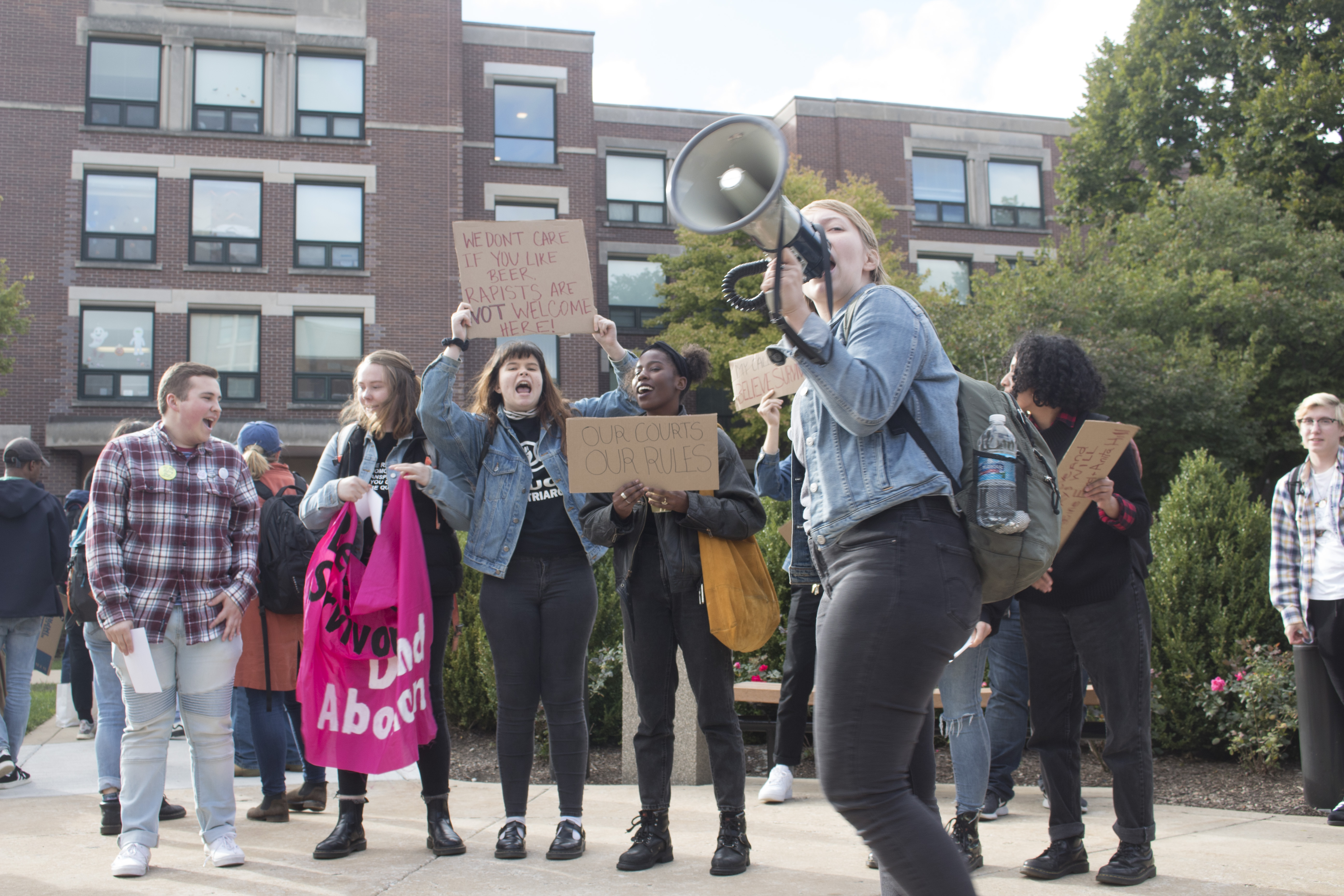
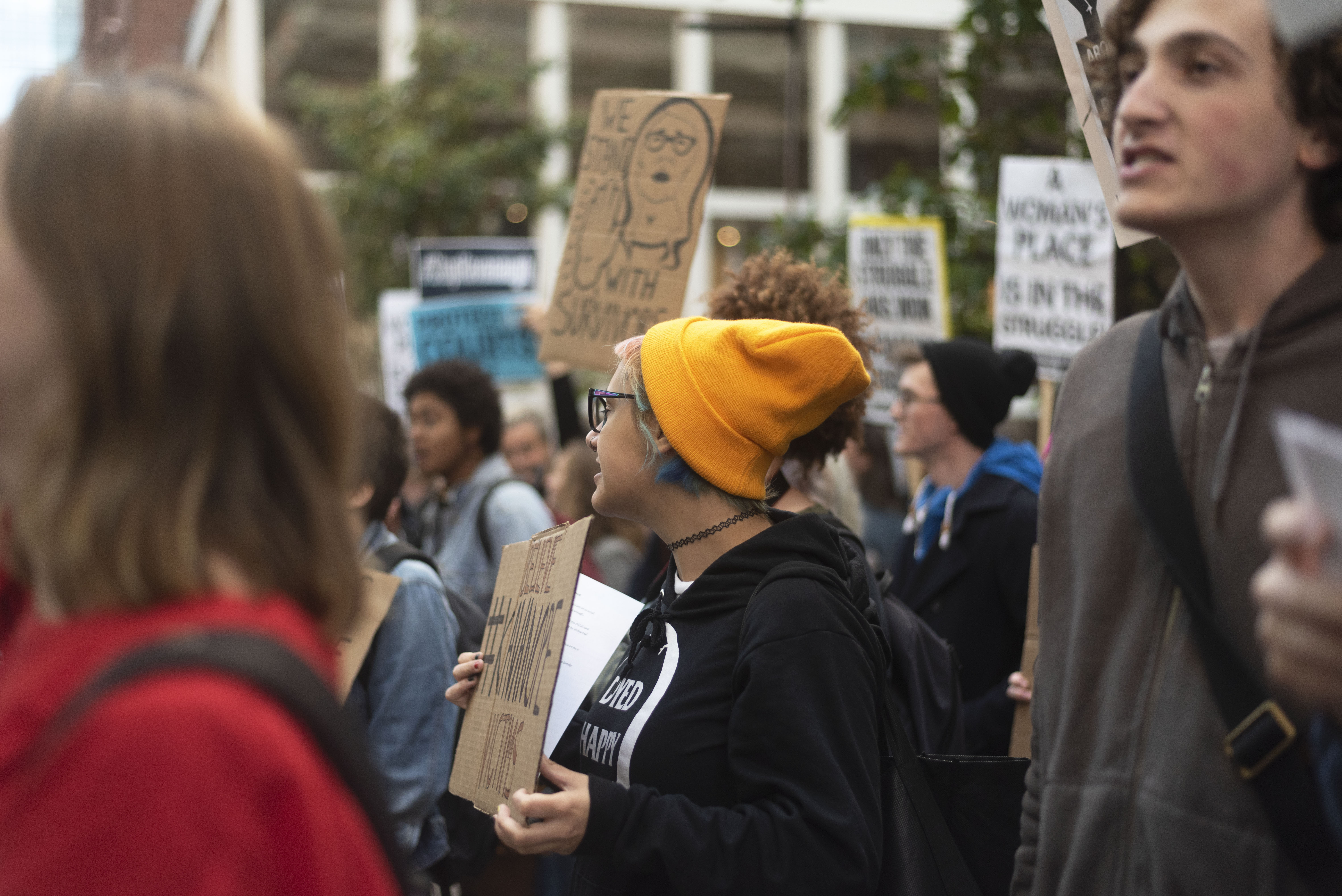
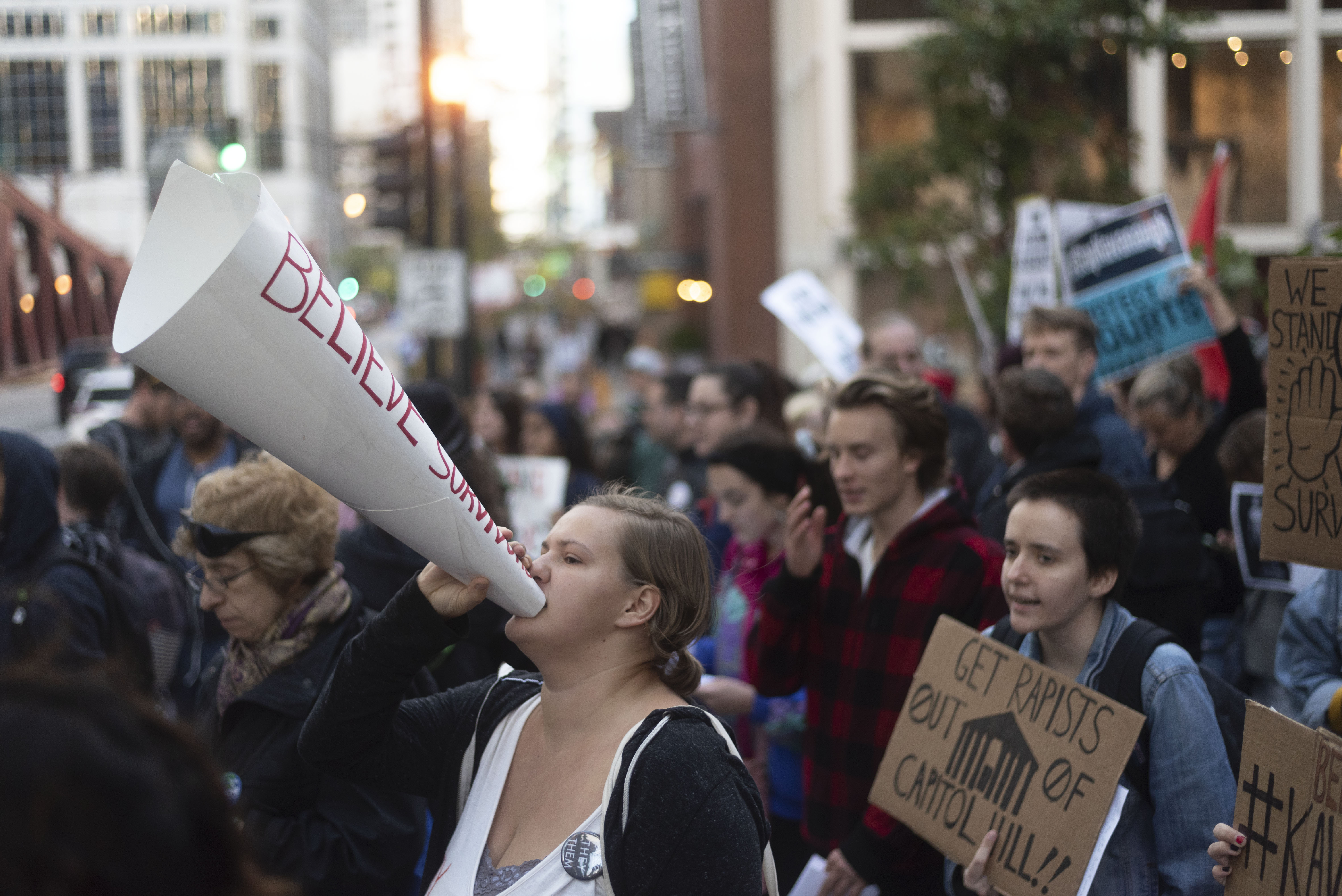

NO COMMENT